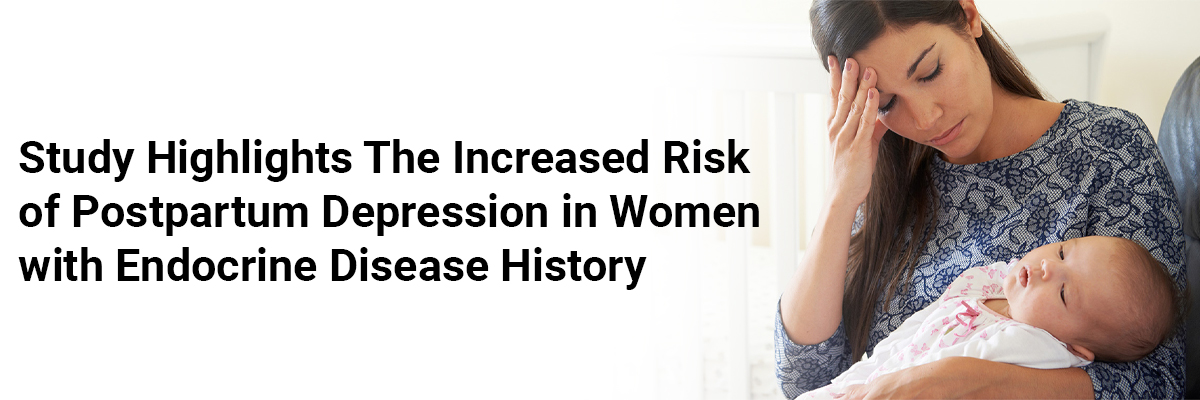
 IJCP Editorial Team
IJCP Editorial Team
Study Highlights the Increased Risk of Postpartum Depression in Women with Endocrine Disease History
Postpartum depression (PPD) is a debilitating condition that affects many new mothers. Previous research has suggested that some women may be at increased risk of PPD because of an extra sensitivity to fluctuating hormones before and after parturition, particularly in women with endocrine disease, characterized by a less-than-optimal capability to self-regulate the hormonal feedback system.
A new study conducted by Rasmussen M. et al. has confirmed the association between endocrine disease history and PPD and highlighted the need for increased awareness of early signs of PPD in pregnant women with this medical history.
Based on information from Danish national registers, the nationwide cohort study included nearly 900,000 deliveries between 1995 and 2018. The study defined Endocrine disease history as thyroid disease, pre-pregnancy diabetes, polycystic ovary syndrome, and/or previous gestational diabetes within ten years before pregnancy. It defined PPD as using antidepressant drugs and/or reaching the hospital for depression within six months after childbirth.
The study found that women with a history of endocrine disease carried a 42% greater risk of PPD than women with no endocrine disease. This association held true even after controlling for other factors such as age, parity, and previous psychiatric history. The study results suggest that pregnant women with endocrine disease history need increased awareness about the early signs of PPD.
However, the study also found a reverse association between PPD history and endocrine disease. Women with a PPD history had a 50% higher risk of endocrine disease when compared with women with no PPD history. This bi-directionality of the association indicates a common underlying element that boosts the risk of both endocrine disease and PPD.
More research is needed to identify this common factor and to better understand the relationship between endocrine disease and PPD.
The findings of this study have important implications for healthcare providers who care for pregnant women. They highlight the need to carefully monitor women with endocrine disease history during pregnancy and postpartum. Women with endocrine disease history may require closer follow-up, more frequent screening for PPD, and earlier interventions to prevent or treat PPD.
Improved screening, early detection, and timely interventions may reduce the burden of PPD in women with endocrine disease history and improve their overall health and well-being.
Rasmussen M, Poulsen G, Videbech P, Wohlfahrt J, Melbye M. Endocrine disease history and the risk of postpartum depression. The British Journal of Psychiatry. 2023;222(3), 119-124. doi:10.1192/bjp.2022.173

IJCP Editorial Team
Comprising seasoned professionals and experts from the medical field, the IJCP editorial team is dedicated to delivering timely and accurate content and thriving to provide attention-grabbing information for the readers. What sets them apart are their diverse expertise, spanning academia, research, and clinical practice, and their dedication to upholding the highest standards of quality and integrity. With a wealth of experience and a commitment to excellence, the IJCP editorial team strives to provide valuable perspectives, the latest trends, and in-depth analyses across various medical domains, all in a way that keeps you interested and engaged.





















Please login to comment on this article